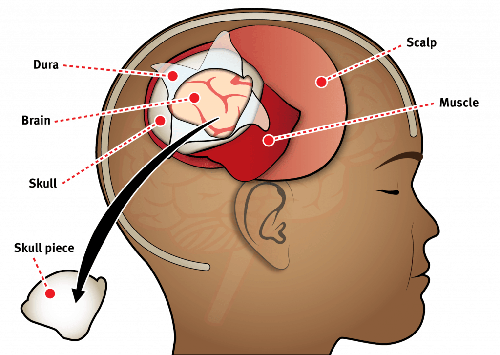Craniotomy And Tumor Excision
India
-
Our Price USD 6930
-
Hospital Price USD 7700
-
You Save : USD 770
Booking Amount: USD 693. Pay Remaining 90% at the hospital.
Book NowAdditional Credit
Among the important extras we offer as part of the Additional Credit are the following:
-
Site Tourism For The Patient & Attendant
-
Airport Pick & Drop Service
-
Ambulance service at airport
-
Priority appointments with The Doctor
-
Cancel Easily Anytime with Full Refund
-
Room Upgradation
-
Free Online Doctor Consultation Valued at USD 20
-
Free hotel Stay for 5 to 7 days Accordingly
-
Welcome Kit at Arrival
-
Interpreter
-
Medical Visa Assistance
What is Included?
- Doctor consultation charges
- Lab tests and diagnostic charges
- Room charges inside hospital during the procedure
- Surgeon Fee
- Cost of implant
- Nursing charges
- Hospital surgery suite charges
- Anesthesia charges
- Routine medicines and routine consumables (bandages, dressings etc.)
- Food and Beverages inside hospital stay for patient and one attendant.
What is not Included?
- Extra Radiology Investigations
- Healthcare Professionals Charges of other consultations.
- Other Requested Services such as Laundry etc.
- Additional Pharmaceutical Products and Medicines After Discharge from Hospital.
- Management of Conditions Unrelated to Procedures or Pre-Existing.
- The cost of any additional implants will be in addition to the package cost.
Package Description
Craniotomy And Tumor Excision:
During a tumour excision operation, the surgeon does a craniotomy and then removes the whole tumour (or almost all of it) before restoring the skull and reattaching the skin. The space left after the excision does not create any issues.
Disease Overview:
Brain tumor
A brain tumour is an abnormal cell growth in the brain's tissues. Brain tumours can be benign (no cancer cells) or malignant (fast-growing cancer cells). Some of them are primary brain tumours, meaning they begin in the brain. Others are metastatic, which means they begin elsewhere in the body and spread to the brain.
As new cells replace old or damaged ones, normal cells proliferate in a regulated manner. Tumor cells multiply uncontrolled for reasons that are unknown.
A primary brain tumour is a benign tumour that begins in the brain and seldom spreads to other regions of the body. Primary brain tumours can be either benign or cancerous.
A benign brain tumour develops slowly, has well-defined borders, and spreads only infrequently. Benign tumours can be life threatening if they are placed in a key region, despite the fact that their cells are not cancerous.
A malignant brain tumour spreads to neighbouring brain regions, develops swiftly, and has irregular borders. Malignant brain tumours, despite their common name, do not meet the criteria of cancer since they do not spread to organs outside of the brain and spine.
Metastatic (secondary) brain tumours start out as cancer in another part of the body and then spread to the brain. When cancer cells are transported through the bloodstream, they develop tumours. Lung and breast cancers are the most prevalent malignancies that spread to the brain.
A brain tumour, whether benign, malignant, or metastatic, can all be life-threatening. The brain can't expand to make place for a growing mass since it's encased in a bony skull. The tumour compresses and displaces normal brain tissue as a result.
Some brain tumours cause the cerebrospinal fluid (CSF) that circulates around and through the brain to become clogged. This obstruction raises intracranial pressure and can cause the ventricles to expand (hydrocephalus). Swelling is a symptom of certain brain tumours (edema). The "mass effect" is caused by the size, pressure, and swelling of the body, which causes many of the symptoms.
Disease Signs and Symptoms:
- Seizures with headaches that seem to get worse in the morning
- stumbling, dizziness, and walking difficulties
- issues with speech (e.g., difficulty finding the right word)
- irregular eye movements, visual difficulties
- Increased intracranial pressure due to weakness on one side of the body produces sleepiness, headaches, nausea and vomiting, and slow reactions.
- The following are examples of specific symptoms:
- Behavioral and emotional problems; poor judgement, motivation, or inhibition; decreased sense of smell or visual loss; paralysis on one side of the body; lower mental ability and memory loss are all possible adverse effects of frontal lobe tumours.
- Parietal lobe tumours can cause difficulty with speaking, writing, drawing, and naming, as well as lack of recognition, spatial impairments, and eye-hand coordination.
- Vision loss in one or both eyes, visual field cuts, fuzzy vision, illusions, and hallucinations are all possible symptoms of occipital lobe tumours.
- Temporal lobe tumours can cause issues with speaking and interpreting language, as well as short- and long-term memory.
- aggressiveness on the rise
- Behavioral and emotional problems, trouble speaking and eating, tiredness, hearing loss, muscular weakness on one side of the face (e.g., head tilt, crooked grin), uncoordinated walking, drooping eyelid or double vision, and vomiting are all symptoms of brainstem tumours.
- Increased hormone secretion (Cushing's Disease, acromegaly), cessation of menstruation, irregular milk secretion, and diminished libido are all possible side effects of pituitary gland tumours.
Disease Causes:
Medical research has yet to discover what causes brain tumours or how to avoid primary brain tumours. Those with the following conditions are at the highest risk of developing a brain tumour:
hereditary illnesses, such as neurofibromatosis, extended exposure to pesticides, industrial solvents, and other toxins cancer elsewhere in the body
First, the doctor will gather information about your personal and family medical history before doing a thorough physical examination. A neurological exam is performed in addition to a routine physical examination to assess mental status and memory, cranial nerve function (sight, hearing, smell, tongue and facial movement), muscular strength, coordination, reflexes, and pain response. Additional testing may include the following:
- Hearing loss caused by tumours near the cochlear nerve can be detected by audiometry, a hearing test conducted by an audiologist (e.g., acoustic neuroma)
- An endocrine examination detects abnormal hormone levels produced by pituitary tumours (e.g., Cushing's Disease) by measuring hormone levels in your blood or urine.
- A neuro-ophthalmologist performs a visual field acuity test to discover vision loss and missing spots in your range of vision.
- A lumbar puncture (spinal tap) can be used to look for tumour cells, proteins, infection, and blood in the cerebrospinal fluid.
Tests of imaging
An X-ray beam and a computer are used to study anatomical features during a computed tomography (CT) scan. It takes pictures of each slice of the brain as it cuts it laer by layer. You may be given a dye (contrast agent) to inject into your bloodstream. CT scans are particularly useful for examining changes in bony structures.
Disease Treatment:
The kind, grade, size, and location of the tumour, as well as whether it has spread and your age and overall health, all influence treatment options. The purpose of therapy may be curative or symptomatic relief (palliative care). Treatments are frequently used in tandem with one another. The purpose of surgery is to remove all or as much of the tumour as feasible in order to reduce the risk of recurrence. Tumors that cannot be removed by surgery are treated with radiation treatment and chemotherapy. For instance, surgery may remove the majority of the tumour, leaving only a little bit of tumour near a crucial structure to be treated with radiation later.
Observation
Observation is sometimes the best medicine. For example, benign, slow-growing tumours that are tiny and have few symptoms can be monitored with annual MRI scans until they become large enough to require surgery. For persons who are elderly or have other health problems, observation may be the best option.
Surgery
For brain tumours that can be accessed without inflicting substantial harm to essential regions of the brain, surgery is the therapy of choice. Surgery can aid in the refinement of the diagnosis, the removal of as much of the tumour as feasible, and the relief of pressure within the skull. A craniotomy is performed by a neurosurgeon to open the skull and remove the tumour. If the tumour is near vital parts of the brain, just a portion of it may be removed. Even if only a portion of the tumour is removed, symptoms can be relieved. On the residual tumour cells, radiation or chemotherapy may be utilised.
The surgeon's ability to precisely locate the tumour, define the tumor's borders, avoid injury to vital brain areas, and confirm the amount of tumour removal while in the operating room has improved thanks to image-guided surgery technologies, tumour fluorescence, intraoperative MRI/CT, and functional brain mapping.
Laser Interstitial Thermal Therapy is a type of interstitial thermal therapy that uses laser
Laser ablation is a minimally invasive therapy in which heat is sent from the inside out to "cook" brain tumours. Through a burr hole in the skull, a probe is introduced into the tumour. Real-time MRI is used to guide the laser catheter.
Radiation
Radiation therapy is a treatment for brain cancers that involves high-energy radiation that are carefully regulated. Radiation destroys the DNA in cells, preventing them from dividing and growing. The advantages of radiation are not instantaneous, but they develop over time. Radiation is more effective against aggressive cancers because their cells proliferate quickly. The aberrant cells die and the tumour shrinks over time. Benign tumours take months to manifest because their cells proliferate slowly.
In a single session, stereotactic radiosurgery (SRS) provides a high dosage of radiation. The subject is immobilised using frames and masks.
Fractionated radiotherapy gives smaller radiation doses over a longer period of time. Patients must return every day for many weeks to obtain the full dose of radiation.
Proton beam treatment targets the tumour at a specified depth using accelerated proton energy. The beam of radiation does not extend beyond the tumour.
The radiation dosage is delivered to the entire brain using whole brain radiotherapy (WBRT). It has the potential to treat a variety of brain cancers and metastases.
Chemotherapy
Chemotherapy medications function by interfering with the division of cells. Chemotherapy causes aberrant cells to die and the tumour to shrink over time. Normal cells can also be damaged by this therapy, although they are more capable of self-repair than aberrant cells. Treatment is given in cycles, with periods of rest in between to allow the body to regenerate healthy cells.
Information related to Treatment
Package Details
Days in Hospital
8 Days
Days in Hotel
*
14 Days
Room Type
Private

Treating Doctor
Dr. Rajender Prasad
Orthopedist & Spine Surgeon- Ankylosis Spondylitis, Brachial plexus repair, Spinal Tumor, Back pain, Spinal Deformity, Carpal Tunnel Syndrome, Cervical Canal Stenosis, Cervical Disc Prolapse, Congenital Spine Abnormality, Facet Joint & Sacro-Iliac, Lumbar Canal Stenosis, Lumbar Disc Herniation, Sciatica, Spinal Infection, Spinal Injury
Indraprastha Apollo Hospitals, New Delhi New Delhi, India
38 Years of Experience

Treating Doctor
Dr. Vipin Tyagi
Orthopedist- Spinal Deformity correction, Correction of deformities, Spasticity, Joint Replacement Surgery, Wrist Problem, Reconstruction and Rehabilitation, Disc Slip, External Fixator, Reconstruction and Bone Lengthening, Cruciate Ligament Recosntruction
Medanta-The Medicity, Gurgaon Gurgaon, India
35 Years of Experience
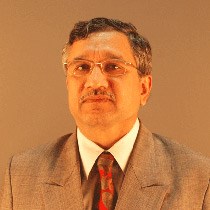
Treating Doctor
Dr. BHAVE ARVIND
Orthopedist & Spine Surgeon- Slip Disc Specialist, Endoscopic Surgery, Minimally invasive spine surgery (MIS), Spine fracture/ trauma, Spinal pain & Spinal Stenosis, Degenerative Spine
Deenanath Mangeshker Hospital and research centre, Pune Pune, India
31 Years of Experience
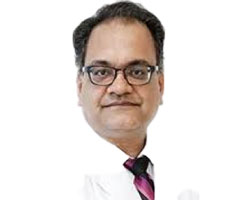
Treating Doctor
Dr. Vineesh Mathur
Spine Surgeon- Spine Surgery, Spine Surgery, Spine Surgery, Spine Surgery, Spine Surgery, Spine Surgery, Spinal Deformity, Spine Tumors
Medanta-The Medicity, Gurgaon Gurgaon, India
31 Years of Experience
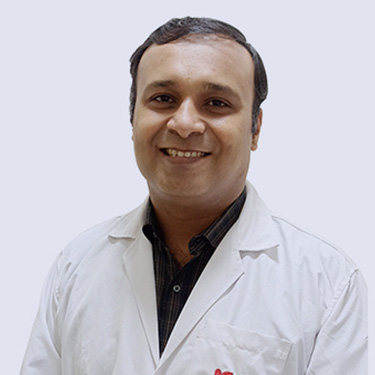
Treating Doctor
Dr. Hrutvij Bhatt
Orthopedist & Spine Surgeon- Spine Surgery, Spine Surgery, Spine Surgery, Minimally Invasive Spine Surgery, Disc replacement (Artifical Disc Placements), Deformity correction, Sports Injuries Surgery, Spine Surgery, Herniated Disc, Cervical Spondylitis, Spine Surgery, Minimally Invasive Spine Surgery, Spine Surgery, Cervical Disc Prolapse, Herniated Disc, Cervical Spondylitis
KD Hospitals, Ahmedabad Ahmedabad, India
10 Years of Experience

Treating Doctor
Dr. Devesh Dholakia
Orthopaedic Surgeon,Orthopaedic Surgeon,Orthopedist & Spine Surgeon- Endoscopic Surgery, Endoscopic Surgery, MIS decompression and TLIF for the spine, Cervical Disc Replacement, Deformity correction, Minimally Invasive Orthopaedic Surgeries, Osteoporosis, Revision Spine and Joint Replacement Surgeries, Scoliosis and Kyphosis Deformity Correction Surgeries, Sciatica, Osteoporosis
Jaslok Hospital & Research Centre, Mumbai Mumbai, India
31 Years of Experience
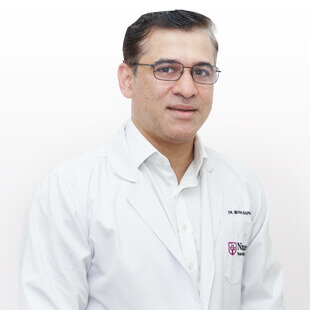
Treating Doctor
Dr. Mihir Bapat
Orthopedist & Spine Surgeon- Spinal Cord Injury, Kyphoplasty, Vertebroplasty, Spinal Deformity correction, Scoliosis, Neck and Spine Biopsy, Wrist Problem, Disc Slip, Column traumatology, Spinal Surgery Disorders, Herniated Disc, Spinal Injury, Herniated Disc, Neck and Spine Biopsy, Vertebroplasty, Scoliosis
Nanavati Max Super Speciality Hospital, Mumbai Mumbai, India
24 Years of Experience
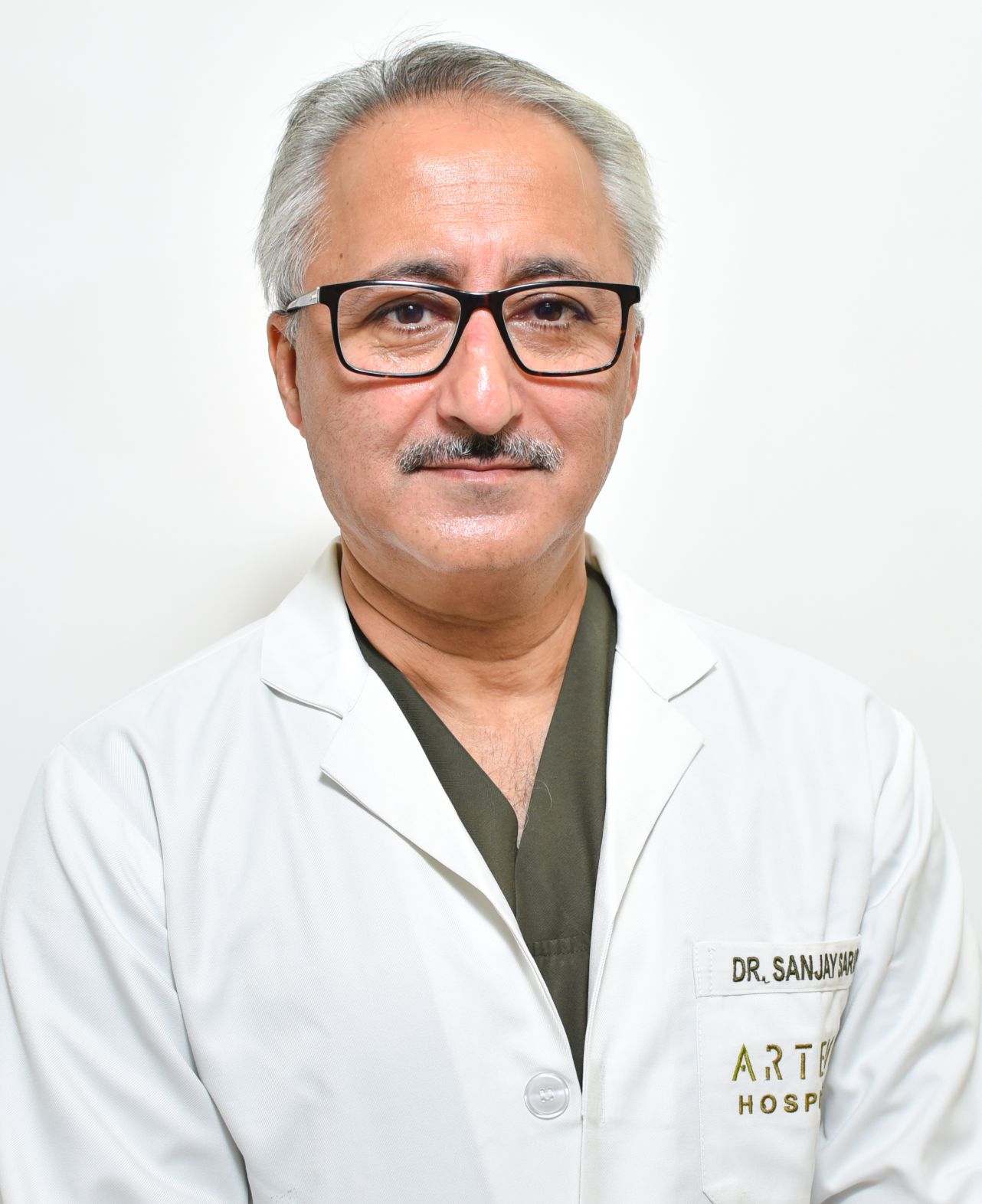
Treating Doctor
Dr. Sanjay Sarup
Orthopedist & Spine Surgeon- Rheumatoid Arthritis, Rheumatoid Arthritis, Cruciate Ligament Recosntruction, Avascular Necrosis of Hip Joint, Osteoarthritis (Most Common), Hip Fracture or Hip Dysplasia, Ankle Fracture, Deformed Knees, Meniscus Tear, Torn Anterior, Osteonecrosis, Hip Osteoarthritis, Knee Pain Treatment, Rheumatoid Arthritis, Osteoarthritis (Most Common), Injury or Fracture of the Hip Joint, Ankle Fracture, Ankle Arthritis, Knee Injury, Erb's Palsy, Bone Tumor in the Hip Joint, Brachial Plexus Avulsion, Carpal Tunnel Syndrome, Avascular Necrosis of Hip Joint, Brachial Plexus Rupture, Major Fractures, Shoulder Injury, Knee Osteoarthritis, Torn Rotator Cuff, Knee Pain Treatment
Artemis Hospitals Gurgaon, India
29 Years of Experience
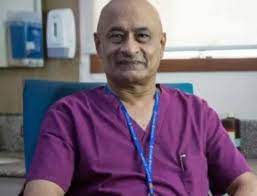
Treating Doctor
Dr. Rajagopalan Krishnan
Orthopedist & Spine Surgeon- Spinal Injuries, Slip Disc Specialist, Foot Drop, Spasticity, Spondylosis, Functional Orthopedics, Neck and Spine Biopsy, Spasticity, Lower Extremity Wound Care, Knee Pain Treatment, Spondylosis, Spinal Therapy, Herniated Disc, Spasticity, Skeletal Muscle Therapy, Foot Assessment, Spasticity, Functional Orthopedics, Foot Pressure/Vascular Assessment, Neuropathy Assessment. Spinal Disc Surgery, Spine Mobilization, Lower Extremity Wound Care, Spinal Diseases, Herniated Disc, Neck Pain, Neck and Spine Biopsy, Ankle-Brachial Index, Hand Pain, Spinal Fusion Heat Therapy, Foot Drop Spinal Surgery, Diabetic Foot Check-Up, Spinal Disorders, Disc Prolapse, Spinal Therapy, Knee Pain Treatment, Spondylosis, Foot Drop
Indraprastha Apollo Hospitals, New Delhi New Delhi, India
46 Years of Experience

Treating Doctor
Dr. Ramesh Sarin
Surgical oncologist- Liver Cancer Treatment, Colon Cancer, Oral cancer surgeon, Breast Cancer Surgeon, Stomach Cancer, Cervical Cancer, Lung Cancer, Stereotactic Radiosurgery (SRS), Prostate Cancer, Radiation Therapy, Astrocytoma Treatment, Anal Cancer Treatment, Tumor Excision
Indraprastha Apollo Hospitals, New Delhi New Delhi, India
44 Years of Experience

